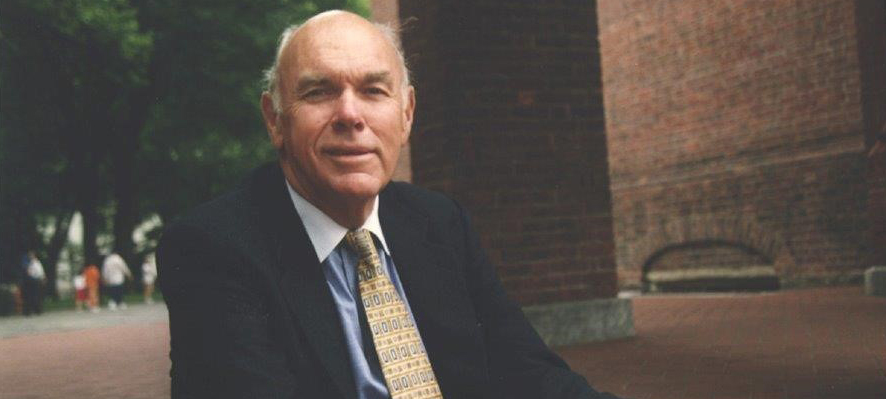The ABA has had a long commitment to judicial independence, but how should it meet new challenges?

Edward Madeira
“The Judicial Department comes home in its effects to every man’s fireside: it passes on his property, his reputation, his life, his all. Is it not, to the last degree important, that [a judge]should be rendered perfectly and completely independent, with nothing to influence or control him but God and his conscience?
“The independence of all those who try causes between man and man, and between man and his government, can be maintained only by the tenure of their office. … I have always thought, from my earliest youth till now, that the greatest scourge an angry Heaven ever inflicted upon an ungrateful and sinning people, was an ignorant, a corrupt, or a dependent judiciary. … Will you draw down this curse upon Virginia?”
—Chief Justice John Marshall addressing the Virginia Constitutional Convention, January 1830
Marshall had been nominated Chief Justice of the United States in January 1801 by outgoing President John Adams after the latter lost the election of 1800. He was confirmed by “lame duck” Federalist senators to the continuing displeasure of Thomas Jefferson, who would become president the following month (with Marshall, his distant cousin, administering the oath of office).
The independence of judges, federal or state, requires that decisions are reached without fear or favor, and it is necessary to the maintenance of trust and confidence in the judiciary and the acceptance of their decisions. Concerns over trust and confidence in our judiciaries have existed in varying degrees from before the founding of the nation.
The ABA has long been a concerned watchdog for actions that threaten judicial independence and public confidence in both the federal and state judiciaries. In the relatively recent past, in February 1996, the then-Standing Committee on Federal Judicial Improvements met in Baltimore in the midst of a blizzard during the ABA Midyear Meeting. The discussion turned to recent events that had prompted a new cycle of political scrutiny and criticism of the federal judiciary. These events included remarks by the president and Senate majority leader that a particular judge should be impeached or forced to resign because of his controversial decision to suppress evidence in a highly publicized drug case; intensified congressional inquiry into the federal judiciary’s governance, including circulation of questionnaires regarding judicial work habits; and the Chief Justice’s statement that Congress was “micromanaging” the judicial branch.
Concern over the potential import of these events was shared with then-ABA President N. Lee Cooper, who then created the Commission on Separation of Powers and Judicial Independence to assess whether these recent events threatened judicial independence, and to make recommendations.
After holding hearings across the country, the commission issued its report, appropriately enough, on July 4, 1997. The commission concluded the existing mechanisms for promoting accountability and preserving independence were sound, but that a cooperative, mutually deferential interbranch relationship was strained and that Congress had shown the judiciary less deference than in the past—and judges had not always responded constructively to such initiatives with complaints that these were congressional “micromanagement.” At the 1998 Midyear Meeting, the ABA adopted several principles derived from the commission’s report, An Independent Judiciary, including a recommendation to address one of the precipitating incidents—that public officials should not threaten to initiate impeachment proceedings because of disagreement with a particular decision of a federal judge.
The report offered several other suggestions to defuse the developing threats to the principles underlying the separation of powers and judicial independence, but it focused largely on the federal judiciary. The commission did, however, note that the challenges facing the state judiciaries, where some 98 percent of all judicial business occurs, were far worse than those facing the federal judiciary and suggested some attention be paid to this deteriorating situation.
This led to creation of a special committee on judicial independence—and, then in 1997, to the creation of the Standing Committee on Judicial Independence—to consider state court issues. Its jurisdiction called for it to assist courts, administrative judiciaries and state, local and territorial bar associations in considering and effectuating responses to infringement of judicial independence; to encourage public awareness and appreciation of the importance of judicial independence and merit selection to the American judicial system and the rule of law; and to make recommendations on ways to improve and enhance the institutional independence and efficiency of state, territorial and local judiciaries and encourage appropriate accountability to enhance judicial independence and the efficient administration of justice. In addition, in 2002, ABA President, A.P. Carlton created the Commission on the 21st Century Judiciary to study and make recommendations to ensure fairness, impartiality and accountability in state judiciaries.
The SCJI, in partnership with entities such as the Commission on the 21st Century Judiciary, the ABA Judicial Division, and the Ohio State Bar Association, took a lead role on issues of great concern to state courts, including judicial selection and retention, judicial performance evaluations, court funding, state court judicial compensation, and recusal, with a focus on making recommendations and proposing standards to assist state courts and bar associations as they work for fair, accountable, independent courts in their own jurisdictions. Some of the ABA’s enduring achievements setting forth standards and making recommendations to protect judicial independence are the adoption of the Standards on State Judicial Selection in July 2000, the Principles and Conclusions of the Commission on the 21st Century Judiciary in August 2003, the Principles on Judicial Independence and Fair and Impartial Courts in August 2007, and policy on judicial disqualification and disclosure in August 2011. The commission’s 2003 report, Justice in Jeopardy, continues to be an all-too-needed resource.
The SCJI and the SCFJI continued their work on behalf of the state and federal judicial systems until they were combined to form the new Standing Committee on the American Judicial System in August 2014. Initially chaired by David F. Levi when he was dean of Duke Law School, SCAJS built upon the important work of its predecessors to preserve judicial independence and improve and protect the American judicial system.
The ABA’s support for judicial independence has never been more important.
A Nov. 11, 2017 editorial in the New York Times entitled “President Trump, Please Read the Constitution,” stated that the president “has treated the Constitution less as a guiding light than as an inconvenient hindrance”.
“His idea of the presidency is, he was elected and he can do whatever he wants,” said Corey Brettschneider, a professor of political science at Brown University … Sometimes Mr. Trump’s constitutional illiteracy is amusing, like the time he told a group of Republican senators that he wanted to protect “Article XII,” which doesn’t exist. More often it’s alarming. He has shown disdain for the separation of powers by repeatedly attacking the federal judiciary and individual judges who have ruled against him.
We are living through one of the recurrent occasions in the nation’s history when charged political debate has focused on the judiciary.
Alexander Hamilton warned (in Federalist 78): “This independence of the judges is equally requisite to guard the Constitution and the rights of individuals from the effects of those ill humors, which the arts of designing men, or the influence of particular conjunctures, sometimes disseminate among the people themselves …”
In the eyes of many, these “ill humors” are at hand, and bring to mind Hamilton’s further warning that history teaches that those who have overturned republics began their career by playing an obsequious court to the people, commencing as demagogues, but ending as tyrants. Madison in Federalist 47 emphasizes the importance of the separation of powers, “the accumulation of all powers, legislative, executive and judiciary, in the same hands … may justly be pronounced the very definition of tyranny.”
In the past, cycles of judicial criticism have passed without serious constitutional crisis, but that can never be guaranteed, and those who care about our Constitution must speak out. In cases of attacks on individual federal judges, there may well be a reluctance for the judge to respond, for as Judge Guido Calabresi observed, “silence is the price of Article III.” So, it must be for the lawyers to speak resolutely and continually to support them and their decisions to protect the constitutional rights of our citizens. At the Nuremberg war criminal trials, a judge asked: “Where were the judges? Where were the lawyers?”
The challenge is, however, how to speak with any hope that the message is received and understood. So, while it is incumbent for the ABA and the bar to take leadership in protecting an independent judiciary, the challenge is “how?” Since previous attempts have apparently been unsuccessful as the problem persists, a new and major initiative is warranted—assembling experts in communications and using the latest media developments to develop and disseminate a powerful message as to the essential role of an independent judiciary. The message must be that the “third branch” protects the Constitution and the rights of all.
Edward (Ned) Madeira is a former partner and Chair Emeritus of Pepper Hamilton (now retired). He chaired the Commission on Separation of Powers and Judicial Independence and the Commission on the 21st Century Judiciary; and was a member of the Standing Committee on Judicial Independence and the Standing Committee on the American Judiciary.
Write a letter to the editor, share a story tip or update, or report an error.



